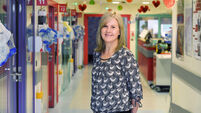Working Life: Men can struggle to verbalise their fears and I try to help them with that

Karen Thomas, urology clinical nurse specialist, Beacon Hospital, Dublin. Picture: Moya Nolan
I like to start with coffee in bed. My work commute is easy - a 20-minute drive to Sandyford.











